Latest News
IEA barred from next ECO meeting in Uzbekistan
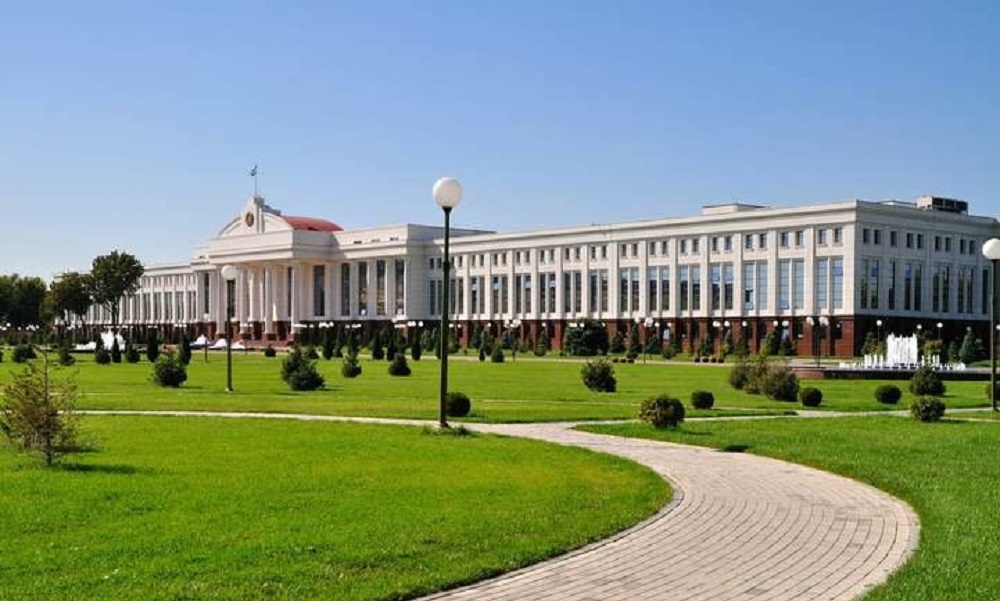
Uzbekistan says the Islamic Emirate of Afghanistan (IEA) will not participate in the next meeting of the Economic Cooperation Organization or “ECO” which will be held in Tashkent.
Sherzod Asadov, the press secretary to the president of Uzbekistan, said on Tuesday that in order for Afghanistan to be represented at the meeting, all ECO member countries and the international community would first have to recognize the IEA as the legitimate government.
Sherzod Asadov emphasized that Afghanistan is an ECO member country but due to political changes in August 2021, it may not “temporarily participate” in ECO meetings and activities.
It has been over two years since the IEA regained control of Afghanistan but no country has yet officially recognized the government.
The international community says that until the Islamic Emirate provides the basic rights of the people of Afghanistan, including the rights of girls and women, their government will not be recognized.
The Islamic Emirate of Afghanistan, however, says that any meeting relating to Afghanistan will not bear results unless the IEA has an active role in these gatherings.
The spokesperson of the president of Uzbekistan believes that the establishment of Afghanistan as a peaceful and prosperous country is an important condition for achieving stable economic development in the ECO environment.
A number of experts consider the presence of Afghan representatives in large meetings, especially in the region, to be important.
The presidents of Uzbekistan, Azerbaijan, Iran, Kyrgyzstan, Tajikistan, Turkmenistan, Turkey, the prime minister of Kazakhstan, the head of the interim government of Pakistan and the secretary general of the Organization of Islamic Cooperation will participate in this round of the ECO meeting.
Pakistani local media reports that Pakistan’s Caretaker Prime Minister Anwarul Haq Kakar has arrived in Tashkent, Uzbekistan to attend the 16th Economic Cooperation Organization (ECO) Summit
The Prime Minister was received by the Prime Minister of Uzbekistan Abdullah Nagmatovich Aripov at Tashkent International Airport.
Caretaker Foreign Minister Jalil Abbas Jilani and Caretaker Commerce Minister Gohar Ejaz are also accompanying the Prime Minister.
Uzbek officials have also said that several bilateral meetings will be held within the framework of this round of ECO meeting.
Latest News
Turkish intelligence captures a Daesh member near the Durand Line
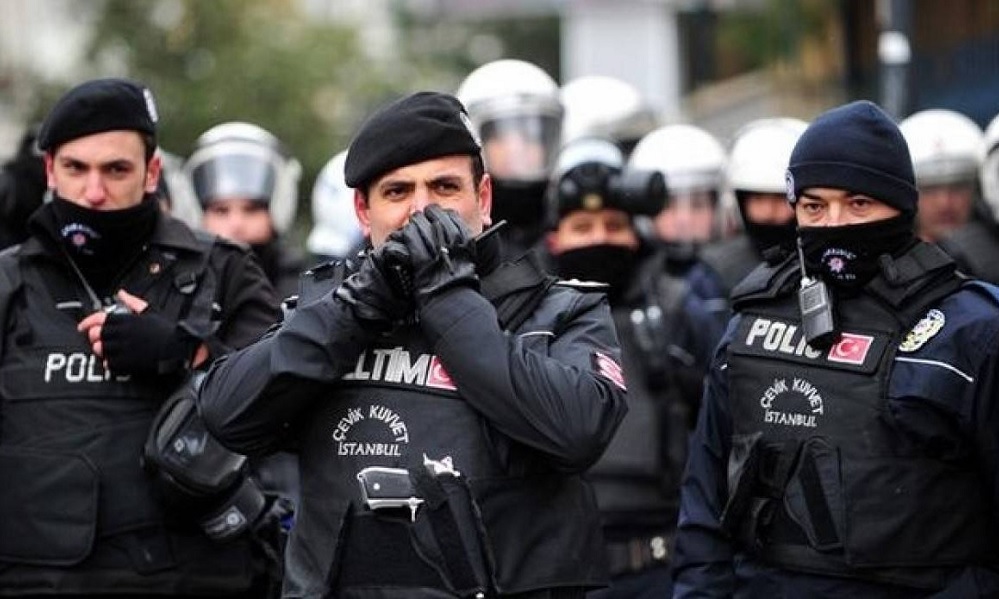
Turkish intelligence agents have captured a senior member of Daesh near the Durand Line, reportedly preventing planned suicide attacks in Turkey and other countries, according to Turkey’s state-run Anadolu Agency on Monday.
The suspect, identified as Mehmet Goren, is a Turkish citizen. He was apprehended during a covert operation and transferred to Turkey. Details on the timing of the operation or the involvement of Afghan and Pakistani authorities were not disclosed.
According to the report, Goren had risen through the ranks of Daesh and was allegedly tasked with carrying out suicide bombings in Turkey, Pakistan, Afghanistan, and Europe.
Daesh has a history of deadly attacks in Turkey, including the January 1, 2017 shooting at an Istanbul nightclub that killed 39 people.
Anadolu Agency reported that Goren’s arrest also provided intelligence on the group’s recruitment strategies and planned activities.
Latest News
Dozens of needy families in Kabul receive winter aid from Bayat Foundation
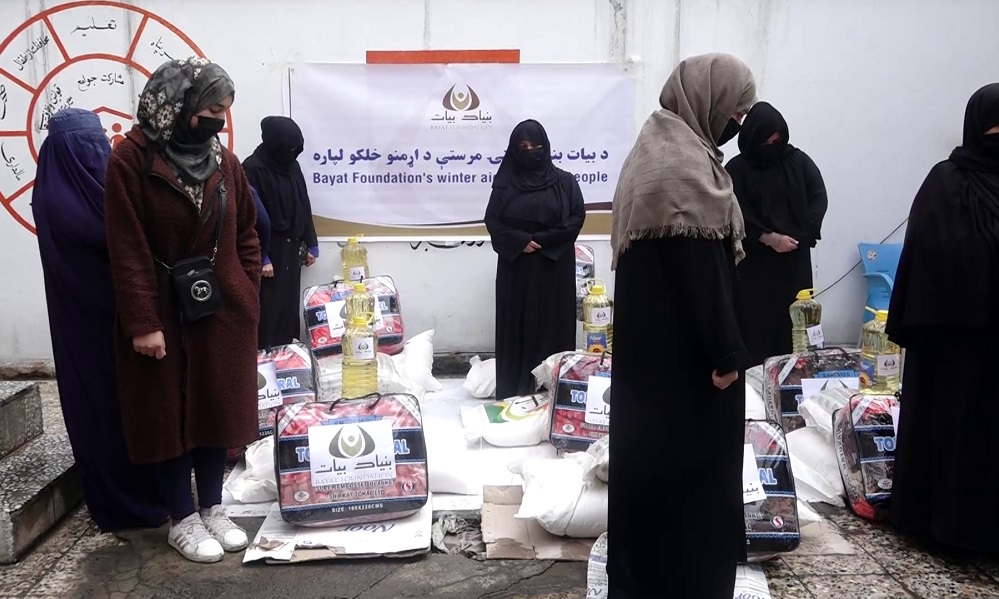
Dozens of needy families in Kabul’s fifth district have received essential winter assistance from the Bayat Foundation, as part of ongoing efforts to ease hardship during the cold season and worsening economic conditions.
According to foundation officials, the aid package includes staple food items such as flour, rice, and cooking oil, along with warm blankets to help families cope with freezing temperatures. Haji Mohammad Ismail, Deputy Head of Bayat Foundation, said the distribution began in Kabul and will soon be expanded to other provinces.
“Our assistance includes flour, rice, cooking oil, and blankets,” Ismail said. “Today, we started distributing these items in Kabul’s fifth district, and God willing, the aid will reach other provinces in the near future.”
Afghanistan continues to face widespread poverty, unemployment, and food insecurity, with many families struggling to meet basic needs, particularly during winter when access to work and heating becomes more difficult.Humanitarian organizations and charitable foundations have stepped up relief efforts to support those most affected.
Beneficiaries welcomed the assistance, describing it as a lifeline. “May God bless you for helping the poor. We had nothing and no work,” said one recipient. Another added, “Thank you for your help. Our flour was almost finished.”
Bayat Foundation officials stressed that winter aid distributions will continue in Kabul and other provinces in the coming days, as part of their broader commitment to supporting needy families across the country.
Latest News
Nearly seven million Afghan refugees return home since Islamic Emirate’s takeover
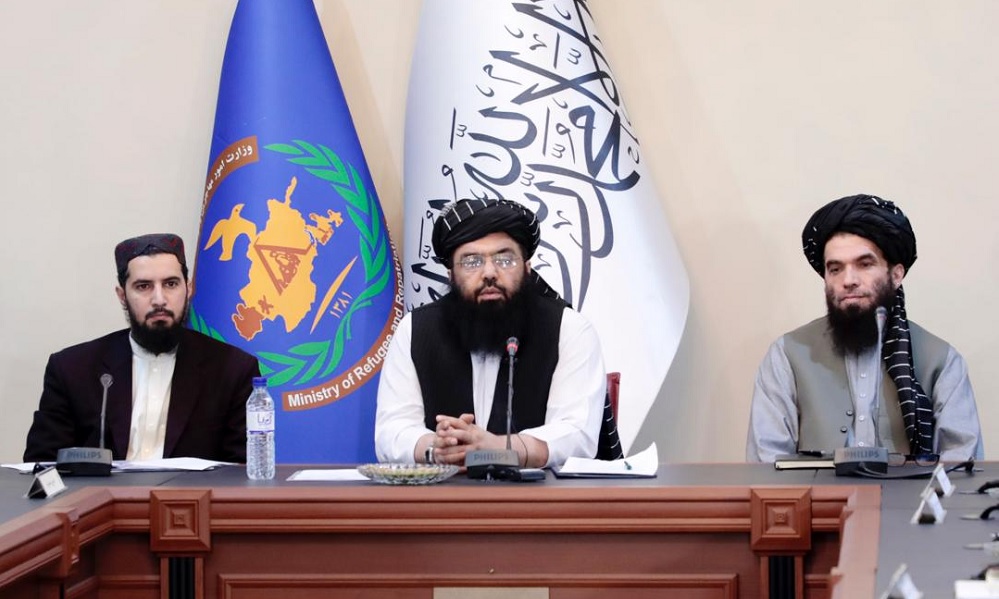
Since the Islamic Emirate came to power, approximately 6.8 million Afghans have returned home, either voluntarily or forcibly, from neighboring countries and other nations, according to the Minister of Refugees and Repatriation.
Mawlawi Abdul Kabir, speaking at a meeting on finalizing a draft plan for a permanent migration solution in Afghanistan, added that 1.3 million Afghans have been internally displaced due to natural disasters during the same period.
With winter approaching, widespread poverty and severe cold are threatening thousands of lives. Meanwhile, the forced expulsion of Afghan migrants from neighboring countries, particularly Iran and Pakistan, continues.
The Islamic Emirate has repeatedly urged neighboring states to allow migrants to return voluntarily. According to UNHCR, over two million Afghans have returned from Iran and Pakistan since the start of 2025.
-

 Latest News4 days ago
Latest News4 days agoAfghan border forces prevent illegal entry of hundreds into Iran
-

 Latest News3 days ago
Latest News3 days agoPakistan summons Afghan diplomat over deadly attack in North Waziristan
-

 Latest News2 days ago
Latest News2 days agoAfghanistan signs 30-year deal for marble mining in Daikundi
-

 Latest News2 days ago
Latest News2 days agoAfghan health minister calls for medical cooperation between Kabul and New Delhi
-

 Latest News3 days ago
Latest News3 days agoJapan allocates nearly $20 million in humanitarian aid for Afghanistan
-

 Latest News3 days ago
Latest News3 days agoKarzai urges reopening of girls’ schools and universities for Afghanistan’s bright future
-

 Health5 days ago
Health5 days agoAfghanistan seeks India’s support in standardizing traditional medicine
-
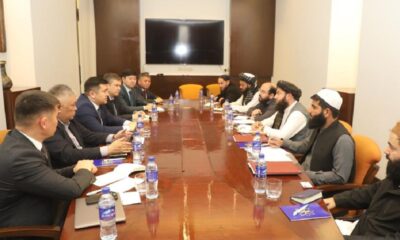
 Business5 days ago
Business5 days agoAfghanistan-Kazakhstan banking ties discussed in Kabul meeting
























